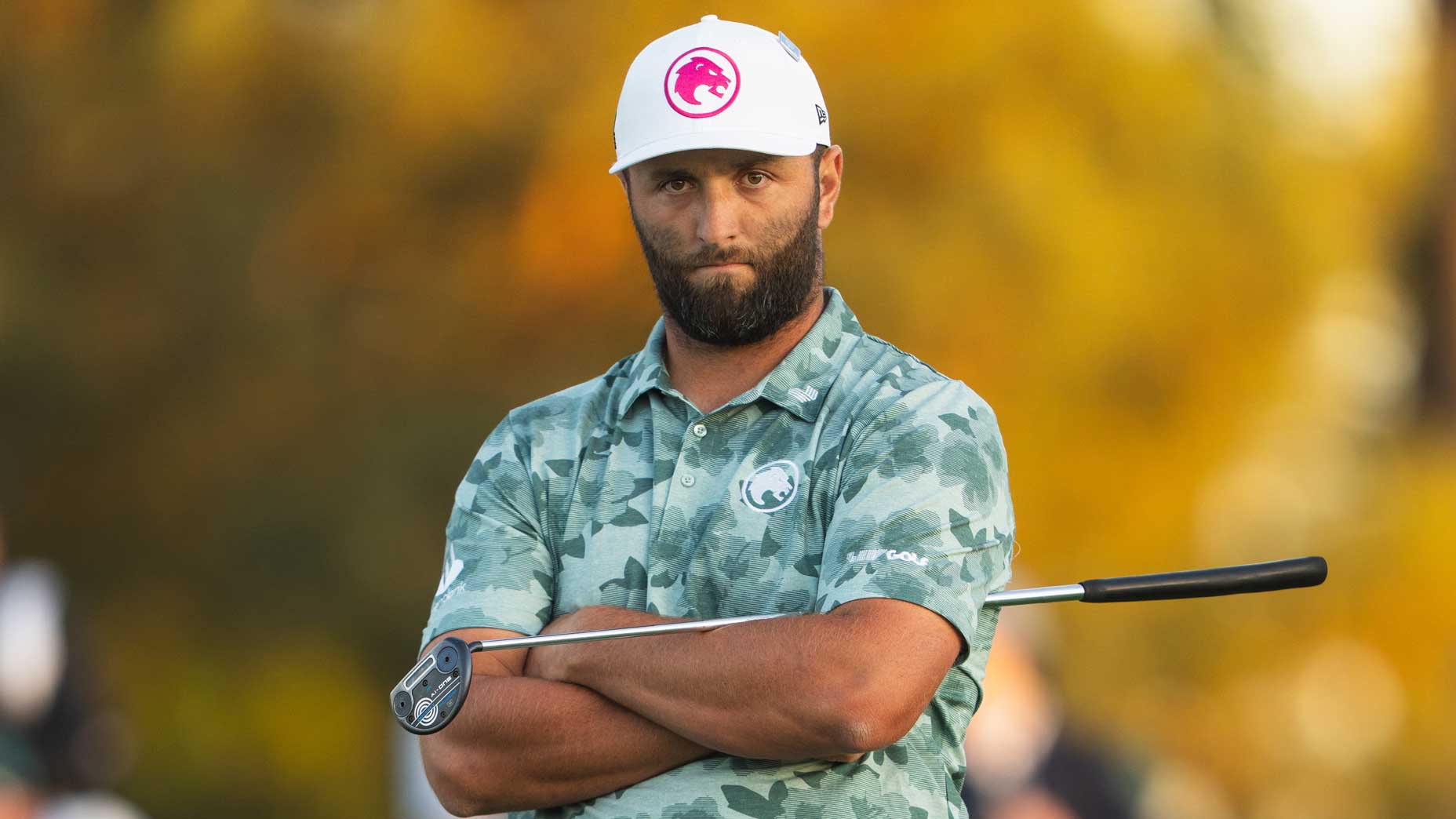AUGUSTA, Ga. — Straw hats didn’t stand a chance. Hell, tightly-fitted baseball caps didn’t stand a chance. The best golfers in the world barely stood a chance. This is the most difficult Augusta National we’ve seen because it’s the most difficult Augusta National they’ve seen.
And that, friends, is so damn fun. Fun for those watching at home. Fun for those whose hats tumbled across the gallery on-site. Not so fun for the guys swinging the sticks, but this firm, fast, fiery course under a rollicking breeze is golf … wait for it … unlike any other.
You could hear it in their exasperation — beaten down players, asked to sign a scorecard, take a breath, and then explain the crooked scores to salivating reporters. What was it like out there? We’ll get to that. First, some visuals that speak for themselves.
Like Zach Johnson marking a one-foot putt on the 9th, pausing, crouching down to line it up, backing away, stepping back in and then hovering over the ball for a few seconds before brushing it in. One-footers were scary on Friday.
There was the leaderboard confusion. On 18, it signaled a projected cut of three over. On 7, it said four over. In the end, it was five over. (Improbably, it settled at six over.)
There was the grounds crew, grinding before dawn and now pulled back into duty in the afternoon. This time with leaf blowers to clear the greens of leaves, pine straw and … sand. Tiny, temporary sandstorms whipped up out of bunkers and cut across greens like shrapnel. Max Homa, one of the leaders at six under, shielded himself for (his measurement) 45 seconds on the 18th green.
And when he peeked up: “[Tiger Woods] is standing there like a statue and then poured [his putt] right in the middle.”
Add it to Tiger Woods lore. Except when Homa was looking away and wiping his eyes, Woods was crouching and shielding himself from it, too.
Oftentimes in the past, wild wind in the spring at Augusta is accompanied by rain, thunderstorms, and muddy conditions. Just think of last year, when that wicked combination toppled three massive pine trees. But this year is different. There was a bit of rain Thursday morning, but Augusta was already in a noticeably different condition when the week began. One night of rain wasn’t going to soften this place up.
Players began discussing it as soon as they got on site. Media called it even earlier, during the Women’s amateur event. This Augusta National is as good as we’ve ever seen it. As exacting as it’s ever been. demanding as it’s ever been. The more the course demands, the more average shots become good. The more good shots become great. And the closer bad shots creep toward ending up in hell. There are 12 shots between the lads in the lead and the lads who squeaked in on the cutline, and that feels about right. Everyone else is headed home.
“The wind is all over the place and nowhere at all,” Cameron Young said after a sporty 73. That may have been one over par but it was two better than the average.
“It’s just trying to take the best guess as you can, and when you guess wrong, the ball goes in the water pretty much every time. I think that sums it up.”
That’s a common refrain in this tournament. Guesswork. Was this northwest wind more north or more west? Like a test the entire class didn’t study for. Or couldn’t. There wasn’t a breath of wind Monday and Tuesday, and most of them skipped class for the Par-3 contest on Wednesday.
“I’ve never seen it like this,” Shane Lowry said. “That was probably the toughest two days of golf that I’ve played.”
Christo Lamprecht called it the toughest back nine of his life, his ball failing to stay put on the greens. Joaquin Niemann said the wind played him. Jon Rahm said it was “borderline” they even continued playing.
How about you, Erik Van Rooyen?
“I am tired. I feel like I got hit by a train just now.”
How about you, Ryan Fox?
“I’m knackered now.”
And you, José María Olazábal? 58 years old, making the cut in his 35th Masters: “I don’t think it gets any tougher than this, to be honest.”
Tough to settle on targets, tough to curve shots, tough to read greens, make putts and find some happiness out there inside the ropes. Unless you’re Zach Johnson, who was reminded of golf back home, on the dry, windy plains of Iowa. He found some joy in the difficulty, his scorecard tallying to 75, but then called himself “demented.”
As we stood there outside the clubhouse, watching beaten soul after beaten soul step into scoring, it was the closest these country club gentlemen in their tailored, ironed slacks could ever look to prizefighters. But they sure were talking like them. Phil Mickelson said he was fighting for pars. Harris English said he was taking punches. And Lowry, well, he had boxing on the mind the whole time.
“Like [my caddie] Darren [Reynolds] said … walking up 18, you’d think it was round 12 today, not round 2.”
